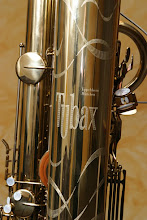In each of the haikus that were studied, nature plays a significant role. In the Basho poem "On a Withered Branch", Basho uses nature to provide an image, "autumn nightfall" (Trans. Harold G. Henderson. Pg. 576). He uses this as symbolism, Autumn representing the season where everything starts to fade away, very much like the symbol of death, the crow, as mentioned earlier in the poem. The nightfall can also represent a coming of darkness, rest, and te end of a day or a life.
Nature: Onitsura
In the Onitsura poem, he uses allusions to nature to say that if something is truly beautiful, everything will find a way to praise it, "Even stones... compose songs to wild cherries" (Trans. Peter Beilenson, Harry Behn. "Even Stones in Streams", pg 576) Here, he is saying that if something is as beautiful as a cherry blossom, that even the most intimate, everyday object will go out of it's way in order praise the beautiful thing.
Nature: Buson
Buson is using nature in order to compare the beauty of a pear blossom to this woman that he sees, "Blossoms on the pear: and a woman in the moonlight" (Trans. Harold G. Henderson. "Blossoms on the Pear". Pg. 576) Buson is just saying that the only thing as or more beautiful that the blossoms of the pear tree that he sees is the woman reading a letter underneath it.
Nature: Issa
Issa is using nature to tell what has happened to his home, "A morning-glory vine... has thatched this hut of mine" (Trans. Harold G. Henderson. "A Morning-Glory Vine", Pg. 576). Here, he is saying that something beautiful has happened to his home, a blooming vine of Morning Glories have woven themselves into his roof.
Comparison:
There's obvious differences between Senryu and Haiku poems. For starters, Haiku poems have a much more serious tone then Senryu poems. Haikus talk all about nature, "Even Stones in Streams" by Onitsura talks about nature while Senryu talks about less complicated stuff, like the child asking the grandmother to take out her dentures in "Do Take your Teeth Out" by Shunu. Senryu also tend to be a little ironically sorrowful, like in After he's Scolded". This one points out that you need to be more kind to your wife, otherwise, you may end up regretting it later.
Haiku:
Time slowly goes by
all work gets done piece by peice
past day's last breath
Senryu:
Those who stay up late
next day, fall asleep in class
then, stay up later
Subscribe to:
Post Comments (Atom)

1 comment:
I like the senryu; staying up late is indeed a vicious cycle. This is a very well-written entry and you've supported it very well with textual evidence and explanation.
Post a Comment